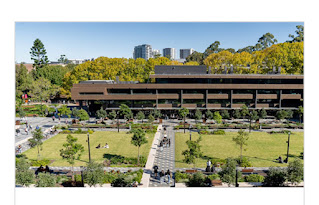 |
| Image shows parts of Vysehrad and Pankrac in Prague, Czech Republic Capital. |
Why Should the U.S. Embassy in Prague Urges Visa Applicants to Make Social Media Profiles Public?
The U.S. Embassy in Prague has issued new guidance encouraging nonimmigrant visa applicants - especially students and exchange visitors - to set their social media accounts to public. According to the embassy, this measure is intended to help verify applicants’ identities and strengthen national security screenings, in line with policies introduced during former President Donald Trump’s administration.
In a post on X (formerly Twitter), the embassy stated, “Every visa decision is a national security decision,” and advised applicants for F, M, and J visas to adjust their privacy settings to allow greater visibility. The recommendation is part of a broader effort by U.S. authorities to tighten immigration controls and monitor the online activities of foreign nationals more closely.
The F and M visa categories cover international students: the F-1 visa is for those enrolled at academic institutions such as universities, high schools, or language training programs, while the M-1 visa applies to vocational or non-academic study. The J-1 visa supports a wide range of exchange programs, including research, internships, medical training, and au pair placements.
The embassy says the updated guidance aligns with a June directive from the Trump-era White House, which emphasized the need to identify individuals who may hold hostile views toward the United States, its institutions, or its values.
However, the policy has drawn criticism both in the U.S. and abroad. In recent months, immigration officials have reportedly revoked hundreds of student visas, particularly targeting individuals who expressed support for Palestinians or joined campus protests against Israel’s military actions in Gaza. Some students with pro-Palestinian views were detained and held in immigration facilities.
The new guidance has sparked concern in the Czech Republic, where more than 700 students are currently enrolled at American universities. Critics argue that requiring public social media accounts infringes on privacy, suppresses free speech, and risks undermining strong educational ties between the two countries. Many online commenters also pointed out that this new advice appears to contradict the embassy’s past statements supporting freedom of speech - including the right to criticize the U.S. government.
Rooney N
Fly4studycm.
























